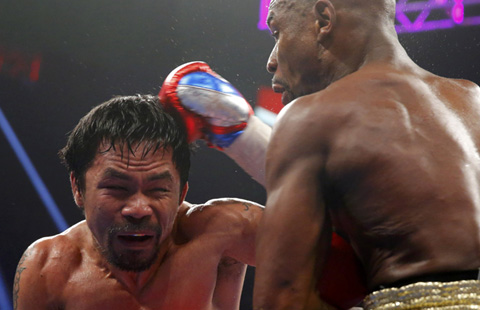Abe's refusal to apologize reveals his real attitude
Updated: 2015-05-04 11:14
(China Daily)
|
|||||||||
 |
|
Japanese Prime Minister Shinzo Abe holds his text as he addresses a joint meeting of the US Congress on Capitol Hill in Washington, April 29, 2015. [Photo/Agencies] |
Japanese Prime Minister Shinzo Abe failed the world again when he stopped short of making a formal apology in a speech to the US Congress on Wednesday. His failure to make a strong statement of contrition for his country's past aggression also further eroded his own credibility as a politician who can squarely face up to his country's history.
During the speech, Abe expressed "deep repentance" over Japan's role in World War II and said that Japan must not avert its eyes from the suffering it had caused people in Asia. But, by not mentioning the "comfort women" and apologizing to the victimized countries in Asia, Abe has intentionally evaded the crucial points again.
Abe's unrepentant attitude was naturally met with strong criticism and indignation from Asian countries, China and the Republic of Korea in particular. It has disappointed many righteous people in the West as well.
Abe talked at length about Japan's pacifist postwar contribution in an attempt to divert attention from the historical issues. But the nationalist Japanese leader should know that for a country that once waged a war of aggression against its neighbors and trampled on world peace, a correct attitude toward history is the necessary basis for any honest contribution.
As it has constantly challenged the postwar order with rightist deeds and disavowed a correct perception of history, Japan is in no position to talk about its contribution to the world.
By repeatedly dodging historical truths, Abe can never win for his country the image of a trustworthy member of the world community.
Within a month, on two important occasions, Abe has deliberately avoided formally acknowledging, apologizing for and accepting Japan's wartime crimes.
His speech at the Asian African Summit in Indonesia and his speech to the US Congress would have been good opportunities for Japan to convince the rest of the world that it is willing to change its incorrect perception of history.
Whether to continue whitewashing the facts or lay down the burden of history with conscience and courage should not have been such a hard choice for Japan. Yet, Abe has failed to give a correct answer time and again; instead he has indulged in the self-calculation of short-term interests.
There is no grey area in this. Japan can only embrace a bright future by showing it upholds the truths of history.

 China pavilion opens at Expo Milano 2015
China pavilion opens at Expo Milano 2015 New exhibition by Fondazione Prada offers new perspective on originality and imitation
New exhibition by Fondazione Prada offers new perspective on originality and imitation
 Mayweather beats Pacquiao by unanimous decision
Mayweather beats Pacquiao by unanimous decision
 Newborn British princess makes first appearance with royal
Newborn British princess makes first appearance with royal
 Quake-hit China-Nepal highway cleared
Quake-hit China-Nepal highway cleared
 Highlights of Milan Expo 2015
Highlights of Milan Expo 2015
 Twins festival kicks off in Yunnan
Twins festival kicks off in Yunnan
 Chinese rescuers work on outskirts of Kathmandu, Nepal
Chinese rescuers work on outskirts of Kathmandu, Nepal
Most Viewed
Editor's Picks

|

|

|

|

|

|
Today's Top News
More speculation in China's market as it's new
Consul general praises Beijing university to alumni
Manufacturing hub starts work on first zero-labor factory
New York City police officer shot in head while conducting patrol
Putin ratifies east-route gas pipeline agreement with China
Britain has a new princess and eagerly awaits her name
UK's Duchess Kate gives birth to a daughter
Nepal President expresses gratitude for China's quake relief work
US Weekly

|

|







